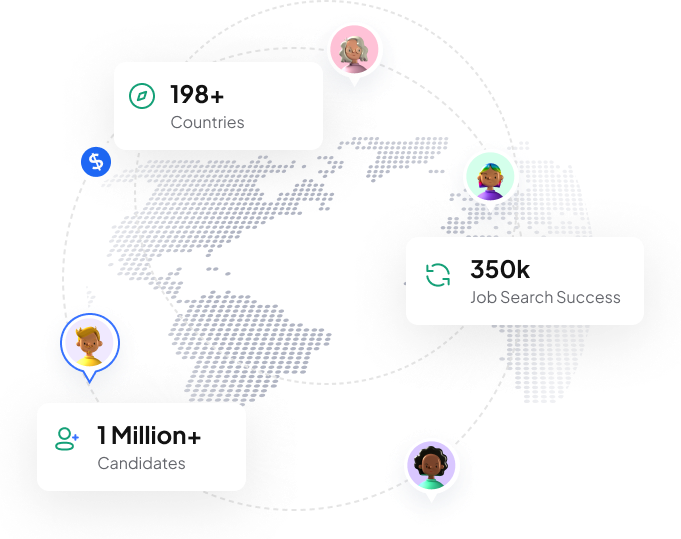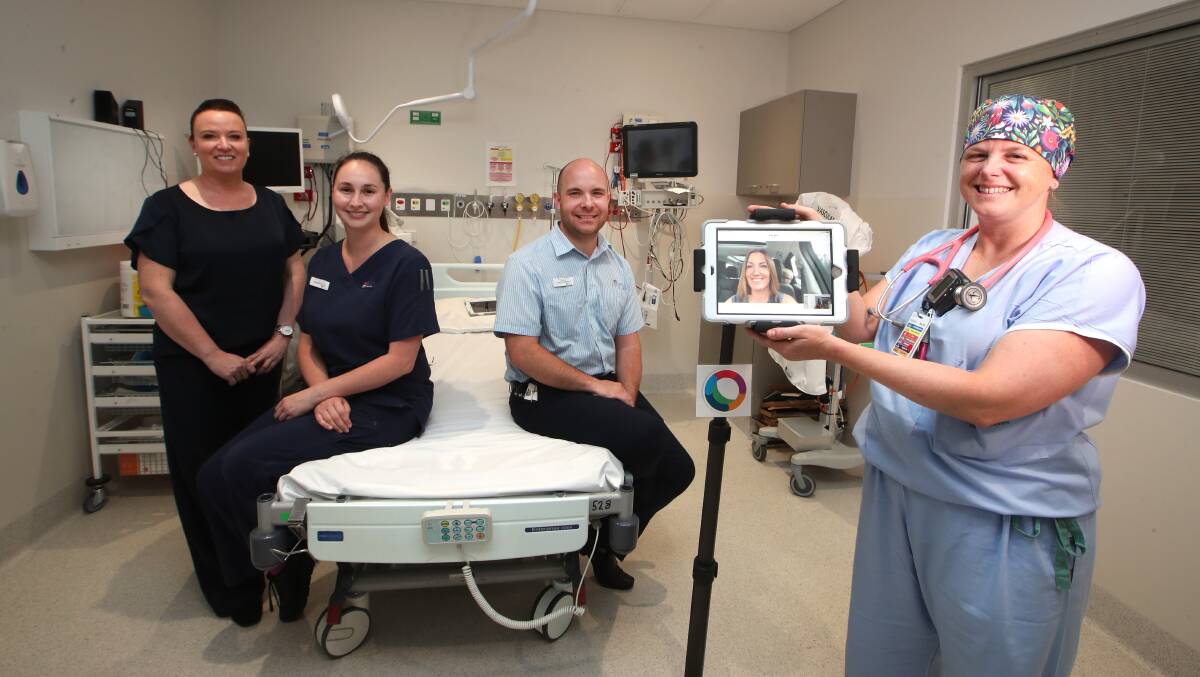Tailor-made features
Discover a healthcare marketplace that connects professionals with top employers, offering personalized job matches, employer insights, and a simple application process

Quick Application Process
Apply for jobs with just a few clicks. Our streamlined process ensures you can find and apply for your ideal healthcare position quickly.

Extensive Healthcare Network
Access job listings from top healthcare providers. We connect you to a wide network of hospitals, clinics, and healthcare facilities.

Career Growth Opportunities
Discover roles that match your skills and experience. We offer opportunities for career advancement and specialization in the healthcare sector.

Personalized Job Matches
Receive job recommendations tailored to your skills and preferences. Our platform learns from your profile to match you with the best opportunities.

Secure & Private Platform
Your personal information is protected with industry-leading security measures. We ensure your job search remains confidential and safe.

24/7 Support
Get assistance whenever you need it. Our support team is available around the clock to help you with any questions or issues you may have.
Job Assists
Trusted by top companies
Innovate with Job Assists

Assist streamlined my healthcare job search, connecting me with top employers effortlessly.
Assist made my job search so much easier! I found the perfect healthcare position quickly with its user-friendly platform.
Bettina Donmez
Senior Nurse Manager at City Health Hospital

0
Customer satisfaction rate
0
Active recruiting jobs
0
Resumes in our database
0
New companies joined
0
Job match success rate
Interested in hiring instead? visit job assist HR made for your business
An experienced healthcare professional will plan, coordinate, and execute your tasks. Overseeing a team of medical experts, they will handle everything from patient care, treatment planning, and health education to administrative duties, research, and community outreach.
To get started, you should have:
- A strong commitment to providing exceptional healthcare
- Relevant qualifications and experience in your field
- A passion for making a difference in patients' lives

Keep you up with Our Most Recent Medical News.
The Future of Telemedicine: Innovations and Challenges
Telemedicine has rapidly transformed healthcare delivery, making it more accessible, efficient, and patient-centered. As technology continues to evolve, the future of telemedicine holds even greater promise. However, along with these innovations come challenges that need to be addressed to fully realize the potential of this healthcare revolution. In this blog, we’ll explore the exciting innovations in telemedicine and the challenges that lie ahead.
Innovations in Telemedicine
Artificial Intelligence and Machine Learning
AI and machine learning are driving significant advancements in telemedicine. From automated diagnostics to personalized treatment plans, AI is helping clinicians make more informed decisions. For example, AI-powered chatbots can triage patients, reducing the workload on healthcare providers and speeding up the consultation process.
Wearable Technology and Remote Monitoring
Wearable devices, such as smartwatches and fitness trackers, have become integral to telemedicine. These devices continuously monitor vital signs, such as heart rate, blood pressure, and glucose levels, providing real-time data to healthcare providers. This continuous monitoring allows for proactive management of chronic conditions and timely interventions.
Virtual Reality and Augmented Reality
Virtual reality (VR) and augmented reality (AR) are making waves in telemedicine by enhancing remote consultations and medical training. VR can simulate real-world medical scenarios for training purposes, while AR can assist surgeons during remote procedures, providing real-time data and visual overlays.
5G Technology
The rollout of 5G networks is set to revolutionize telemedicine by enabling faster and more reliable communication. With low latency and high-speed data transfer, 5G will support more complex telemedicine applications, such as remote surgery and high-definition video consultations.
Blockchain for Secure Data Management
Blockchain technology offers a solution to one of the most significant challenges in telemedicine: data security. By decentralizing data storage and ensuring transparency, blockchain can protect patient information from cyberattacks while ensuring that healthcare providers have access to accurate and up-to-date records.
Challenges in Telemedicine
Regulatory and Legal Issues
One of the primary challenges facing telemedicine is navigating the complex regulatory and legal landscape. Different countries and states have varying regulations regarding telemedicine practices, licensure, and reimbursement. Harmonizing these regulations is crucial for the widespread adoption of telemedicine.
Data Privacy and Security
With the increase in telemedicine, protecting patient data has become more critical than ever. Cybersecurity threats are a growing concern, as the healthcare industry is a prime target for data breaches. Ensuring robust security measures and compliance with data protection laws is essential to maintain patient trust.
Equitable Access to Telemedicine
Despite its many benefits, telemedicine can exacerbate healthcare disparities if not implemented equitably. Rural areas, underserved communities, and elderly populations may lack access to the necessary technology or internet connectivity to fully benefit from telemedicine services. Addressing these disparities is crucial for ensuring that telemedicine is accessible to all.
Integration with Existing Healthcare Systems
Integrating telemedicine with traditional healthcare systems presents another challenge. Many healthcare providers face difficulties in incorporating telemedicine into their existing workflows, leading to inefficiencies and potential gaps in patient care. Seamless integration and interoperability between telemedicine platforms and electronic health records (EHRs) are necessary for optimal patient outcomes.
Patient and Provider Acceptance
The success of telemedicine depends on its acceptance by both patients and healthcare providers. Some patients may be hesitant to embrace telemedicine due to concerns about the quality of care, while providers may resist adopting new technologies due to a lack of training or fear of change. Educating both patients and providers about the benefits of telemedicine and providing adequate support is key to overcoming these barriers.
Conclusion
The future of telemedicine is bright, with innovations that have the potential to transform healthcare delivery as we know it. However, these advancements also bring challenges that must be addressed to ensure that telemedicine can reach its full potential. By navigating regulatory hurdles, ensuring data security, promoting equitable access, and fostering acceptance among patients and providers, telemedicine can truly become a cornerstone of modern healthcare.
As we move forward, collaboration between healthcare providers, technologists, regulators, and patients will be essential to shape the future of telemedicine—one that is innovative, inclusive, and secure.

Dr. Emily White
5 min read min read
Understanding Mental Health: Tools and Resources

Dr. John Becker
7 min read
Advancements in Cancer Treatment: A 2024 Overview

Dr. Susan Lee
8 min read
The Role of Nutrition in Chronic Disease Management

Dr. Alan Grant
6 min read






